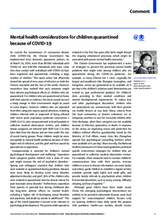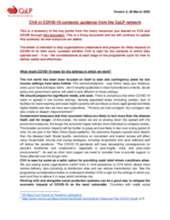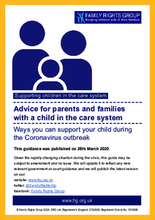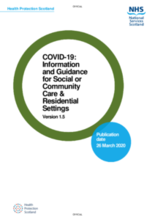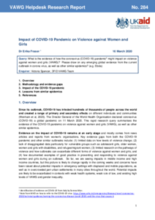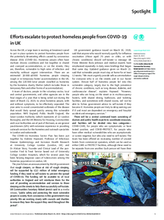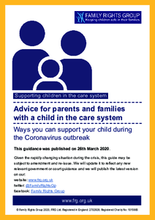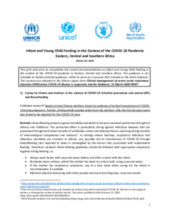This section includes resources on the response to the COVID-19 pandemic as it relates to child protection and children's care.
News on COVID-19 and Children's Care
Webinars and Events on COVID-19 Response
Displaying 541 - 550 of 756
This comment from the Lancet reviews the implications of the COVID-19 crisis on children's mental health, including children who are separated from their caregivers.
This is a summary of the key points from the many resources on cash and voucher assistance (CVA) and COVID.
This guide aims to help parents and families of children who are looked after in the care system. The guide also provides information for families whose children have been adopted.
This guidance from Health Protection Scotland is to support those working in social or community care and residential settings (residential children’s homes, including secure children’s homes) to give advice to their staff and users of their services about COVID-19.
This webinar brought together key global agencies including WHO, UNICEF, the World Bank, LEGO Foundation, ARNEC and other partners to discuss early childhood development during the COVID-19 crisis.
This report from the VAWG Helpdesk explores the ways in which the COVID-19 pandemic may impact on violence against women and girls, based on emerging evidence, including increased risk of corporal punishment, sexual exploitation, and abuse of girls, as well as intensification of child protection issues due to children being separated from caregivers.
This brief article from the Lancet reviews the UK's response to the needs of people living in homelessness during the COVID-19 crisis.
This guide aims to help parents and families of children who are looked after in the care system during the Coronavirus outbreak.
This joint note aims to consolidate the current recommendations on Infant and Young Child Feeding in the context of the COVID-19 pandemic in Eastern, Central and Southern Africa.
This webinar reviews how to transition to remote gender-based violence (GBV) assessments and services in light of the COVID-19 pandemic.

